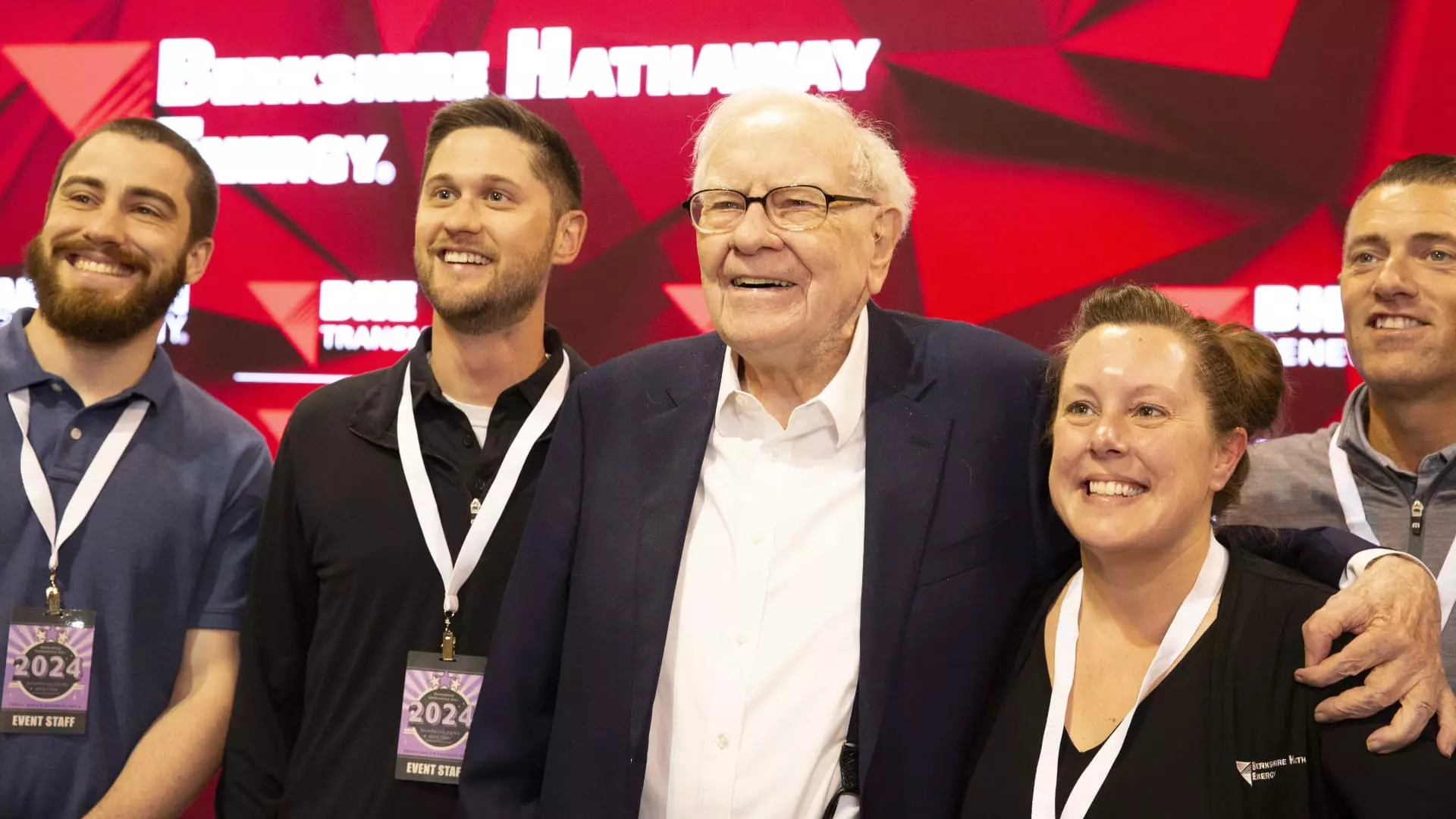Berkshire Hathaway, under the leadership of CEO Warren Buffett, is set to announce a record cash pile exceeding $200 billion, highlighting Buffett’s recent sale of some of his favorite stocks like Apple and Bank of America. This drastic move has raised concerns among investors and analysts, who believe that Buffett may be trying to de-risk the company’s portfolio in light of the current bull market conditions. By trimming top holdings and selling off winning investments, Buffett is signaling a cautious stance in an overheated market environment.
Buffett’s decision to sell off stocks like Apple and Bank of America after years of holding them in high regard is a significant shift in Berkshire’s investment strategy. The sale of Bank of America shares, in particular, has caught many by surprise, considering it was the conglomerate’s second-largest holding after Apple. This move suggests that Buffett is reevaluating his investment priorities and looking for opportunities to reallocate capital in a more strategic manner.
With Berkshire’s cash pile reaching unprecedented levels, questions are being raised about the potential impact of this accumulation on the company’s overall financial performance. While the cash hoard has been earning sizable returns amid increasing Treasury yields, the looming decline in interest rates poses a challenge for Buffett. The pressure to deploy $200 billion in cash effectively to generate significant returns while minimizing risks remains a critical concern for Berkshire’s management team.
Apart from the cash pile dilemma, investors are also closely monitoring the performance of Berkshire’s key business segments, such as BNSF Railway and Berkshire Hathway Energy. Both divisions have faced challenges in recent times, with BNSF grappling with wage increases and revenue declines, while BHE is under pressure due to potential liabilities from wildfires. The sluggish volumes in railroad operations and the impact of higher labor costs on utilities could weigh on Berkshire’s overall results, overshadowing the strong performance of its insurance business in the first quarter.
Despite these challenges, Berkshire Hathaway has managed to outperform the S&P 500 this year, with its market capitalization nearing $1 trillion. This growth reflects the underlying strength of Buffett’s long-term investment approach, even in the face of uncertainties in the market. However, with Buffett turning 94 and expressing caution about the current investment landscape, it remains to be seen how Berkshire will navigate the evolving market conditions and sustain its track record of success in the future.
Berkshire Hathaway’s growing cash pile and Buffett’s strategic maneuvers in the stock market underscore a period of uncertainty and change for the iconic conglomerate. As investors brace for Berkshire’s second-quarter earnings report, all eyes will be on how Buffett addresses the challenges posed by the massive cash hoard and the shifting investment landscape. With the Oracle of Omaha at the helm, Berkshire Hathaway’s journey ahead promises to be a compelling saga of adaptation and resilience in an ever-changing financial world.

